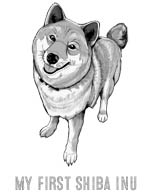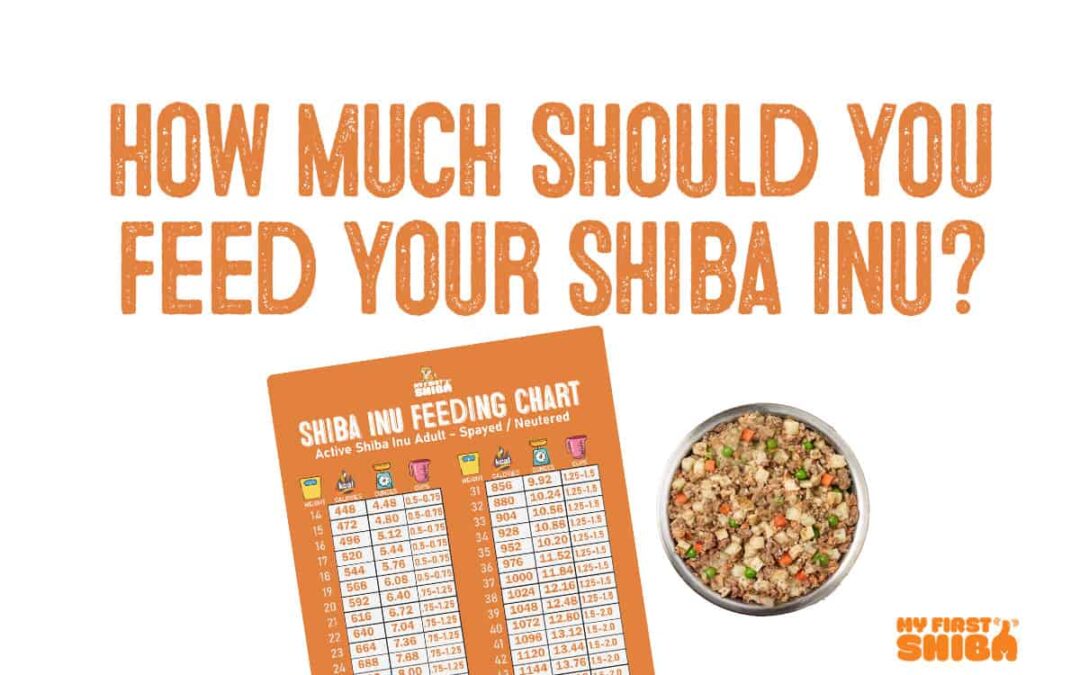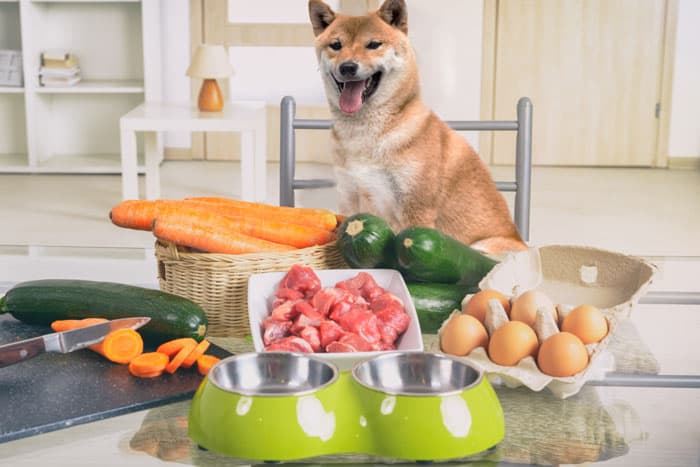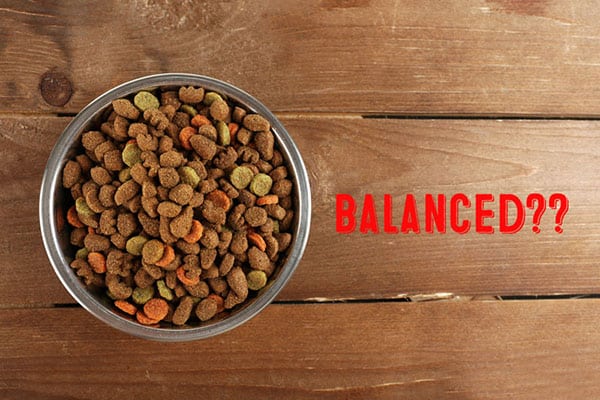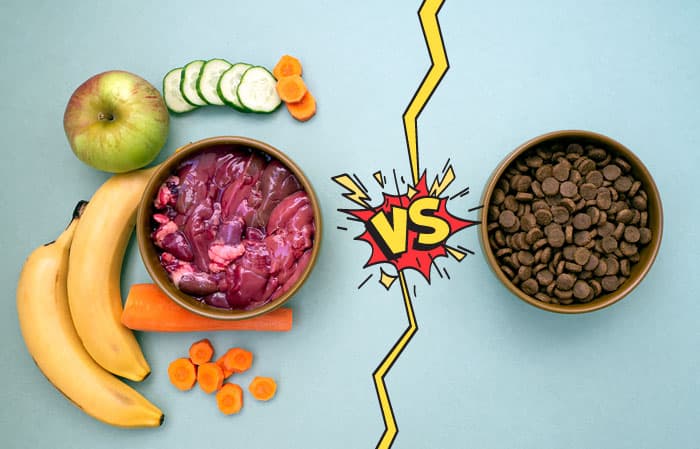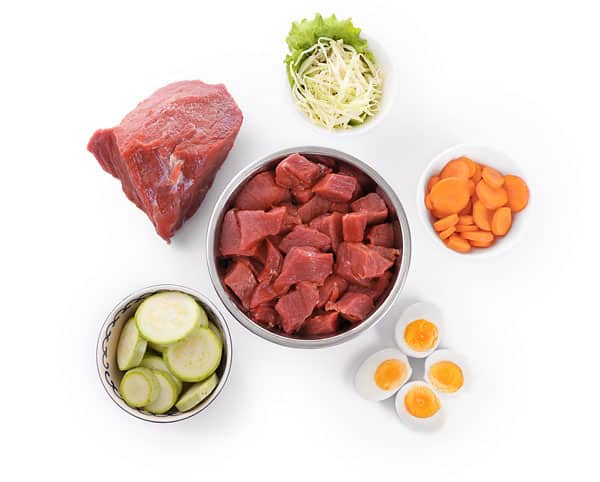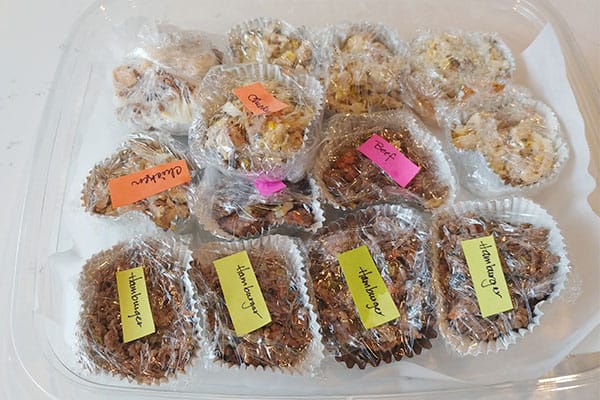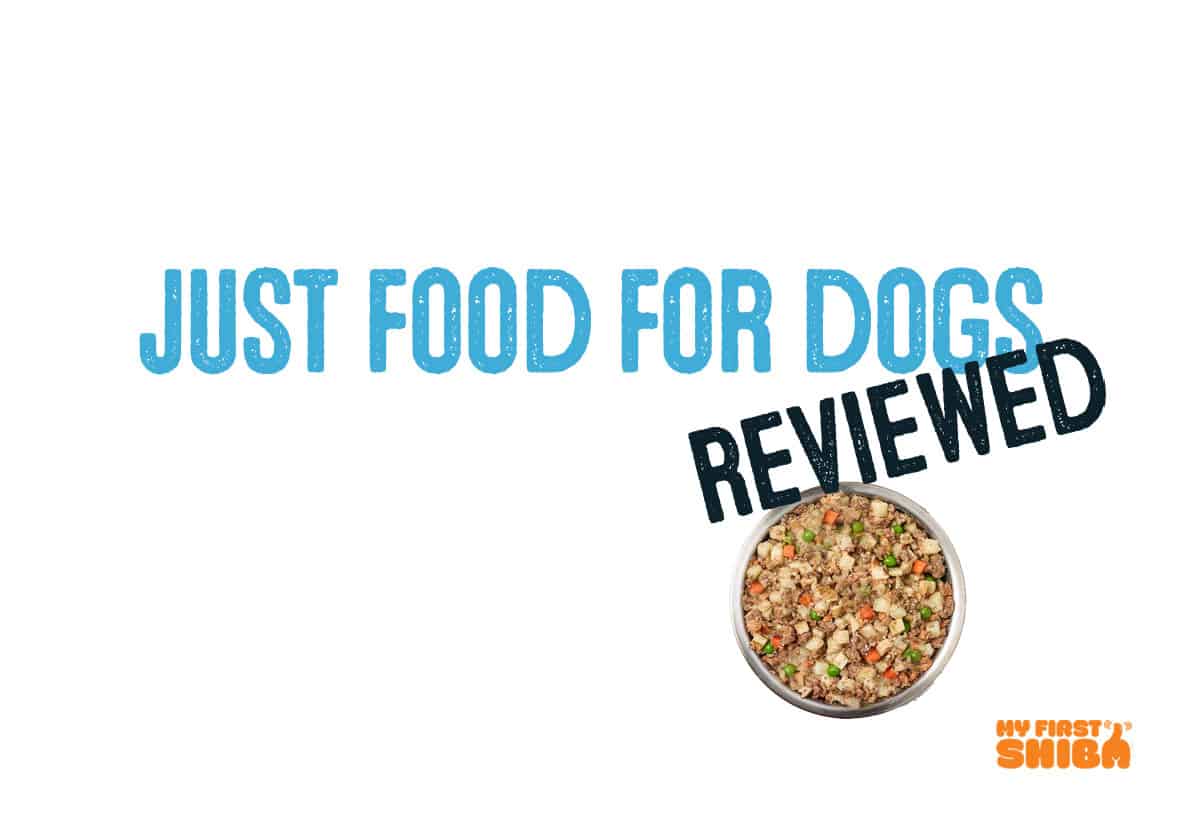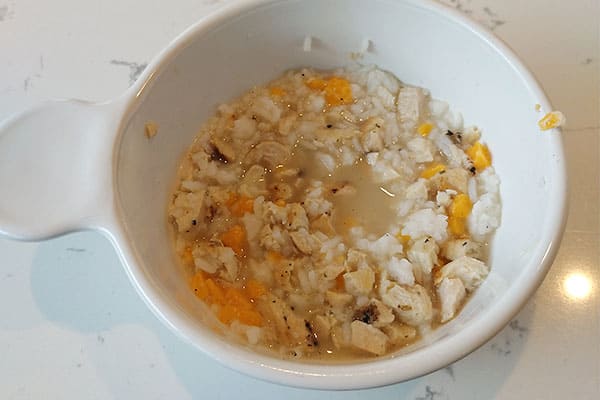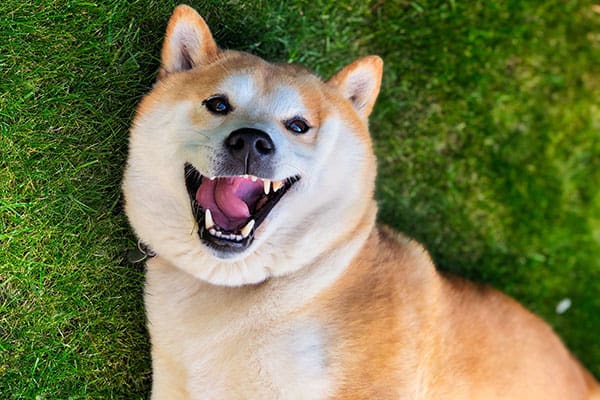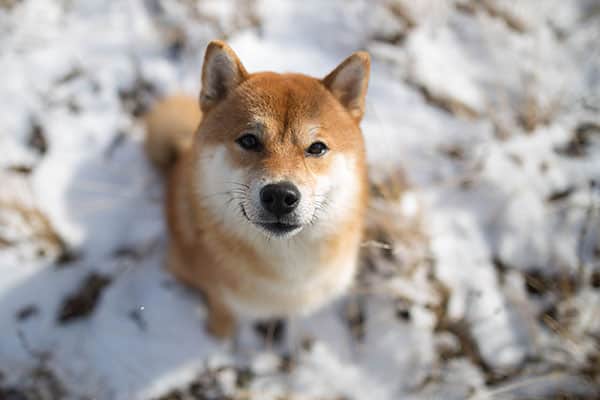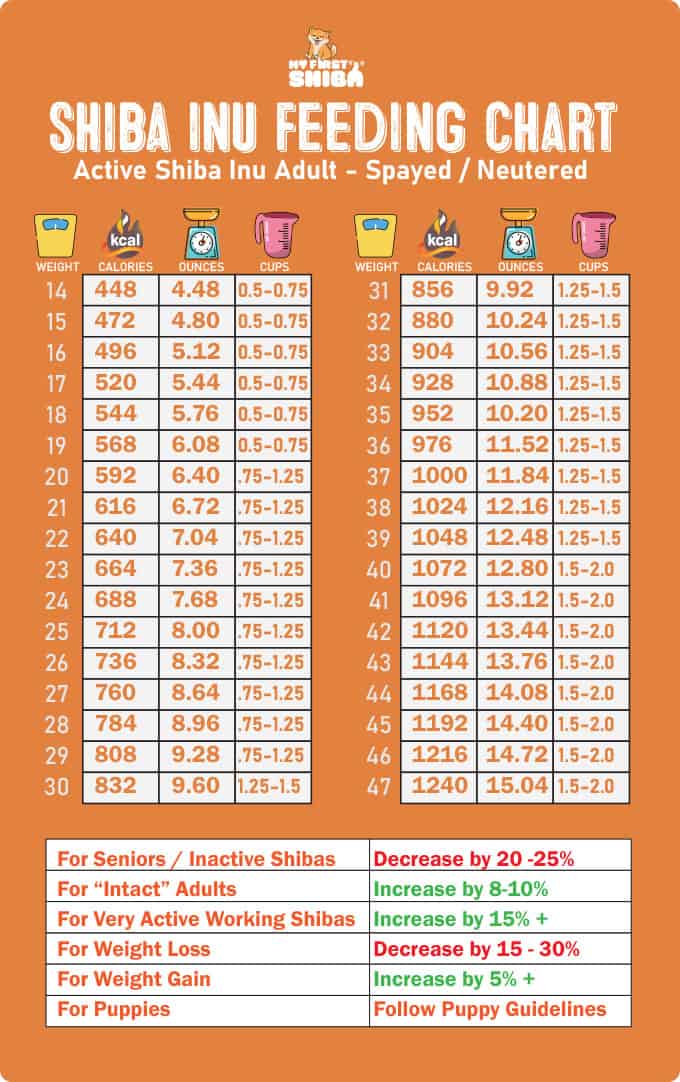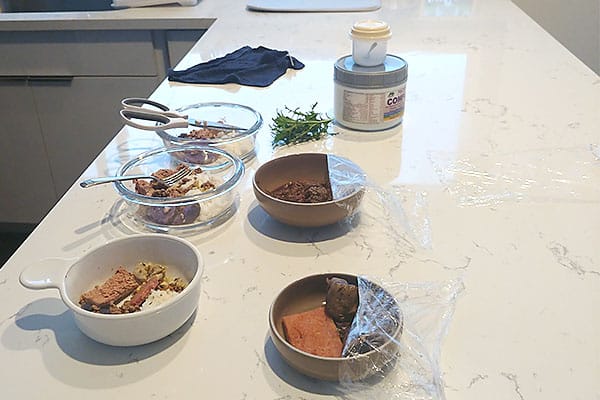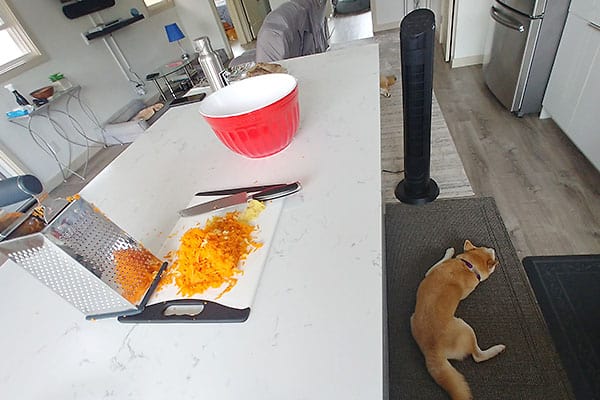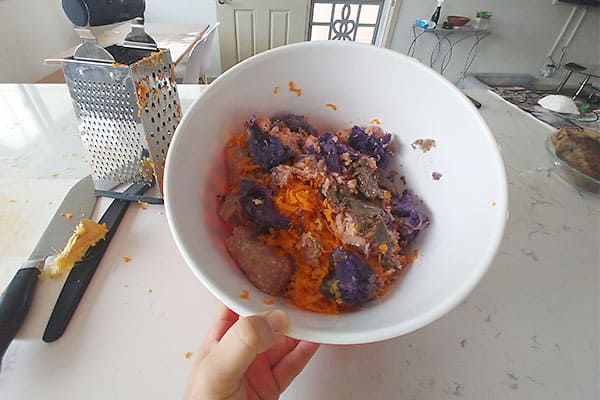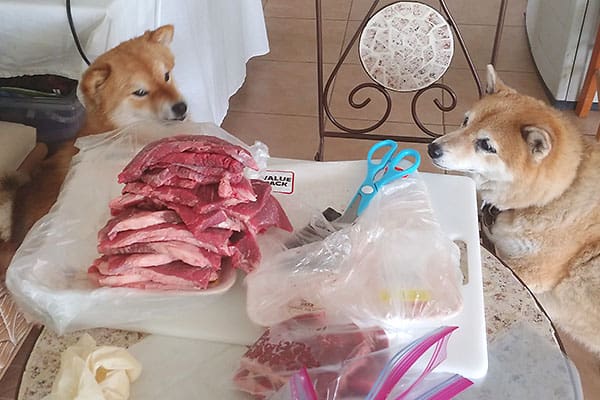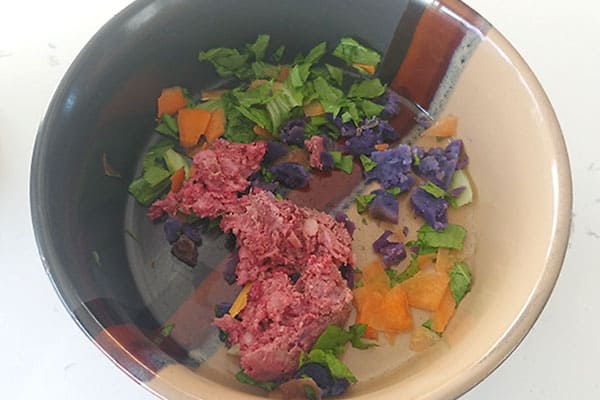On occasion, our posts contain affiliate links. However, we only recommend products that we truly believe in. For more information, visit my privacy policy page.
Feeding your Shiba Inu good and “fresh” nutrition is one of the best things you can do for your pup.
Granted not everyone one of us can feed 100% fresh, 100% of the time.
The main thing is we do our best to feed fresh WHEN we can. Even a small addition of fresh food can make a meaningful impact to your Shiba’s health.
And it’s not only the quality we need to be mindful about – but it’s also the quantity.
Overweight dogs suffer from a multitude of issues such as reduced lifespan and quality of life, joint pain, heart disease, and so much more.
Read this article to learn what’s the best food to feed your Shiba and how much of this delicious chow to dole out every day.
The Best Diet To Feed Your Shiba Inus
The best diet to feed your Shiba Inus is a balanced (of course) diet that contains as much real, whole foods as possible – and as fresh as possible.
Equally important is that the dog’s diet be as diverse as possible as well.
And finally, the diet of course needs to have the proper balance of vitamins, minerals, micronutrients, macronutrients and essential fatty acids.
Now there’s two diametrically opposed viewpoints of what type of food is best for dogs:
“The Kibble is Best View Point”
First, and the most common is the viewpoint that kibble is the best thing to feed a dog because it’s “balanced”.
The proponents of this claim are (not surprisingly) the mega-commercial dog food industry CEO’S as well as most veterinarians who are financially supported by these mega-corporations throughout the journey to becoming a veterinarian.
Although most kibble is supposedly balanced, on paper at least – it also has a whole bunch of negatives that are not mentioned by the dog food manufacturers.
The most sinister negative is the fact that kibble is PACKED With preservatives and contains tons of mostly low quality synthetic vitamins to make the kibble “nutritionally complete”.
However, being nutritionally complete due to the addition of synthetic vitamins is far from ideal.
It shouldn’t be hard to realize that having a balanced meal made from FRESH, whole ingredients is so much better – especially for the long term health of your dog’s life.
You could think about this as telling humans it’s okay to eat mostly cereal and a complete “nutrition” drink for the rest of their lives as it has all the added vitamins and minerals necessary to sustain life.
This is SOOOOO far from the truth that even the USDA agrees.
In the “Dietary Guidelines for Americans” (published every five years), the USDA states that the optimal diet for Americans is a diet that contains vitamins and minerals from whole foods versus supplementation.
So while many dogs can live long lives with a diet of “kibble” – it is one of our least recommended methods of feeding Shiba Inus.
Mostly for the following reasons:
- Preserved with little bioavailable nutrients
- Packed with synthetic vitamins and minerals mostly sourced from Asia
- Filled with industry “leftovers”, rendered “meat” (which in the recent past included euthanized animals, road kill, expired grocery meats with foam packaging still intact – thankfully, due to increased public awareness most commercial dog food manufacturers are moving away from this horrific process) – basically not the best ingredients
- Possible risk of chemical contamination
- Possible risk of incorrect supplement ratios
Not All Kibble is Bad
Thankfully, there are a few (mostly smaller) dog food companies that actually care about the canines they feed and go the extra mile in ensuring that their kibble contains the best (sometimes human grade) ingredients possible.
Our favorite kibble companies can be found here.
“The FRESH Is Best Viewpoint”:
On the opposite side of the which food is best debate are the fresh, homemade, raw proponents who provide their dogs with only fresh foods and “mostly” shun anything manufactured and preserved.
In this group, dogs are typically spoiled with quality fresh meats, organs, veggies, and both natural as well synthetic supplements.
The fresh food feeders are passionate about providing the best food possible for their dogs as well as bringing awareness about the dangers of certain commercial food manufacturing processes that result in recalls, illness, deaths in pets.
Being that we advocate for feeding your Shiba as fresh as possible, accordingly “most”” of our views are aligned with the views of the proponents of fresh feeding.
However the one problem, a serious one, with fresh feeding proponents, is that many fresh feeding advocates are NOT teaching dog owners the importance of balancing their dog’s homemade diets, nor how to do it properly.
The nutrition needs of our canine friends are different than ours and achieving relatively good nutritional balance is not simply throwing some chicken, veggies, and starch together and calling it a day.
Nope, not at all – the world of doggy nutrition is actually pretty complicated.
Proteins, good fats, vitamins, minerals, macronutrients, micronutrients, antioxidants, the list goes on.
And the health effects of dogs not getting balanced nutrition can be very serious.
Fortunately, many new fresh food companies for dogs are offering balanced meals ready to serve.
So until you’re confident that you’ve learned how to feed your Shiba Inu fresh, “properly”, start with meals from these companies.
One of our favorites is Just Food For Dogs out of California. They’ve started small but expanded to be available at many locations across the U.S.
Determining Your Shiba Inus Nutritional Needs
From puppy hood to their golden years, our Shiba Inus nutrition needs and preferences will change over time.
Activity level, metabolism, meal preferences, health conditions all have to be considered when planning your Shibas meals.
Younger, active Shibas need more calories than older, sedentary Shibas.
Older, senior Shibas need less calories, but more nutrients and supplements – basically “quality” calories. Excess weight on older dogs is detrimental to both the dog’s health and comfort.
Also senior Shibas will likely benefit from a “wetter” diet that will help prevent dehydration (older Shibas may have difficult drinking enough water) as well as improve digestion.
Many senior Shibas with dental issues will find wetter softer meals easier to chew.
“Wetter” food for elderly or ill Shiba Inus
Shiba Inu Feeding Guide – How Much Food To Feed Your Shiba Inu
Determining how much to feed your Shiba Inu can get a bit tricky when feeding multiple types of nutrition (homemade, raw, freeze-dried, kibble, etc).
Then there’s different types of measurements (cups, ounces, body weight, wet, dry) – enough to make most Shiba owner’s heads spin.
Thankfully, armed with just a bit of knowledge about general guidelines which we’ll provide – you’ll be an expert on feeding your Shiba in no time!
One of the most important tools in determining proper feeding is actually you.
Because all though there’s feeding calculators, and general instructions on packaged dog food, each dog has individualized needs that is determined by:
- Age
- Activity level
- Health
Your need to take all of these factors into account because recommended daily amounts can vary as much as 25% from your actual Shiba’s caloric needs – so use these guidelines STRICTLY as starting points
It’s important to constantly assess your Shiba to determine if you’re feeding too much, too little, as well as ensuring that your Shiba is getting the proper nutrients.
So if your Shiba is starting to gain a bit of weight, cut down portions or look into a different type of meal to control weight gain.
Many Shiba Inu owners with overweight Shibas say they simply “follow the directions of the dog food so they can’t be doing anything wrong right?”
Wrong. So. Wrong.
If you have an obviously overweight Shiba Inu that means – plain and simple – that your Shiba Inu is ingesting too many calories and needs to cut down.
However, it’s best to first get a consultation with your veterinarian to ensure there aren’t any medical issues contributing to their weight.
How To Calculate Shiba Inu’s Caloric Needs
The most straightforward way to determine how much to feed your Shiba Inus is to roughly calculate how many calories your Shiba needs each day.
This can be done in two ways- the first is going by the dog’s R.E.R. or resting energy requirements, and the second is by using body weight calcutions
The first method requires you to first determine your Shiba’s R.E.R. (resting energy requirements) which is how many calories your Shiba needs to sustain basic body functions such as respiration, digesting, pumping blood, etc.
Determining your Shibas RER requires some calculations though.
Multiply dog’s body weight kilograms raised to the ¾ power by 70, for example, a 10kg (22lb) adult neutered dog of healthy weight needs RER = 70(10kg)3/4 ≈ 400 Calories/day.
Since, math is NOT a favorite for everyone, you can simply use the handy chart I included in this article.
After finding your Shiba’s R.E.R., you next need to calculate your Shiba’s M.E.R. (maintenance energy requirements), or the amount of calories needed per day to maintain their target weight.
This formula is easily calculated and based on your Shiba’s age, activity level, and if they are desexed or not.
So if your Shiba has a R.E.R. of 400 calories, you simply multiply it by the number based on the following:
- Neutered adult x1.6
- Intact adult x1.8
- Inactive / obese / senior x 1.2 -1.4
- Active working dogs x2.0-5.0
- Puppy (0-4 months) x3.0
- Puppy (4 months to adult) x2.0
So if your 22-pound adult Shiba Inu is spayed / neutered, you’d multiply the R.E.R (400 calories) by 1.6 which looks like this:
400 x 1.6 = 640 calories required per day.
Since adult Shiba Inus can be relatively inactive for much of the day, I’d shave off 5-10% of this total to start with first. So taking off 5% would be about 608 calories as a baseline.
That’s a lot of CALCULATING!!
Another, somewhat easier way to calculate daily food needs for your Shiba is by using this simple calculation using body weight.
This calculation multiples your dog’s body weight in pounds by either 2-3%. The result is how much you should feed your Shiba in pounds.
So if your Shiba weighs 20 pounds and you multiply by 2%, that will give you .4 poundsor 6.4 ounces.
Multiplying by 3% would give you .6 pounds or 9.6 ounces.
A 20-pound Shiba Inu would therefore require between 6.4 to 9.6 ounces, which is basically a little more or a little less than one cup of food.
In general, the calorie calculation is a bit more precise and helpful – especially when multiple sources of foods are used.
Now that you know how many calories your Shiba Inu needs, you just need to know the caloric information about each type of food you plan to feed your Shiba to figure out the proper “portion” size.
For example if you’re not ready to feed your Shiba Inu fresh and plan to feed your Shiba Inu a high quality kibble instead, simply look at the package for calories per cup.
If your Shiba’s daily caloric requirement is 600 calories and each cup of dry dog food contains 400 calories, then you’ll feed your Shiba Inu 1.5 cups of food per day.
Not too bad right?
For those that have an aversion to anything mathematical, here’s a few links to our favorite canine calorie calculators:
- https://vetcalculators.com/calories.html
- https://www.dogfoodadvisor.com/dog-feeding-tips/dog-food-calculator/
Handy Shiba Inu Feeding Chart:
For Full-sized Shiba Inu Feeding Chart – Click Here
Determining Calories In Fresh / Homemade Food
Because fresh homemade food contains constantly varying ingredients, figuring out exactly how to feed gets a tad bit trickier – especially if you’re making it yourself.
Companies that sell fresh homemade food provide calories information and feeding guidelines with their meals so you don’t need to calculate anything.
When making your own homemade fresh food, one of the best ways to figure out calorie / nutrition information is to use a nutrition calculator app or go to a website such as mynetdiary.com to use their “recipe” calculator.
Simply input the ingredients and the calculator will give you nutritional information such as calories, protein, fats, etc.
However, don’t worry about having to get everything perfect when first starting out.
As long as you’re doing your part in providing a balanced diet for your Shiba, figuring out the calorie / amount part gets much easier because you can actively monitor your dog’s weight.
A good, albeit, “rough” rule of thumb is that homemade fresh food that is mostly cooked has about 50-70 calories per ounce or 400-560 calories per 8 ounce cup.
So if your Shiba requires 500 calories per day, then you’d feed about 1-1.25 cups of homemade fresh cooked food per day.
The Critical Importance of Balanced Nutrition
The reason why most veterinarians don’t recommend homemade dog food is because most recipes do not contain the right amounts of vitamins / minerals – mostly due to deficiency.
And nutritional deficiency in dogs can lead to very serious, and sometimes threatening conditions such as:
- degenerative muscle disease
- Rickets
- Bone deformities
- Weakened immune system
- Reproductive failure
- Coat / skin problems
- Connective tissue disorder
- Fatty liver
- Hypocalcemia
- Brain damage
One of the main reasons for the spreading of inadequate diet information is the fact that so many “blogs” blurt out recipes without knowing much about pet nutrition – they simply want web traffic.
Fortunately, this issue can be resolved with a bit of knowledge, research, and planning.
It’s also important to remember that you don’t have to aim for absolute perfection with each meal.
Just as with humans, nutritional homeostasis is achieved over time – provided variety and quality is present.
So take the time and make the effort to study the best way you can provide your Shiba Inu with fresh, balanced, and delicious meals – whether it be purchased, made by yourself, etc.
And even if you can feed fresh only occasionally – anything is better than nothing at all.
There are actually 3 Shibas in this photo =)
What We Feed Our Shiba Inus
Currently, our three adult Shiba Inus enjoy a constantly rotating diet of:
- Fresh homemade meals (cooked / raw) 65%
- Honest Kitchen dehydrated food 20%
- Freeze-dried dog food (Tru-Dog, Primal) 5%
- Open Farms Beef kibble 10%
- Treats (steak, chicken, Ziwipeak, Wellness Core, Stella Chewys)
Having multiple feeding options is super handy and the Shibas enjoy it as well.
It also helps to diversify their meals and provide them with not only different types of vitamins and minerals, but it also offers diversity in flavors, textures, and consistency.
This is also helpful to counter finicky eaters, as well as provide multiple feeding options during times of illness especially with aging Shibas.
Making, feeding, and storing homemade fresh food takes quite a bit of effort and time that many of us do not always have.
When time is limited, having options such as freeze-dried and dehydrated dog foods are perfect choices.
Even high quality kibble is fine in moderation. One of our Shibas likes the “crunch” that kibble provides – though don’t fall for the myth that kibble “cleans” teeth.
It doesn’t and actually contributes to tartar build up – which is why regular teeth brushing is necessary.
Fresh Homemade Meals
A large portion of our Shiba’s diet consists of homemade meals either store bought or made at home by yours truly.
For the most part, these homemade meals consist of the same food that we would eat that day / week.
When we have steak – the dog’s will get steak.
Same thing for chicken, mackerel, salmon, and ground beef (10-15% fat)…
In addition to the main protein, these are the other ingredients that commonly added to round out their meals:
- Veggies (dark greens, carrots, tomatoes)
- Small portion of starch (brown rice, sweet potatoes, pumpkin, gourds, potatoes, whole wheat pasta)
- Eggs
- Fruit (avocado, blueberries, papaya)
- Coconut oil
- Supplement
Always be on top of fat content. Don’t feed to much fatty meats to your Shiba, especially if your dog has had pancreatitis in the past.
As an example, it’s best to use ground beef that’s no more than 10% fat. It’s okay to use 15% occasionally but try render out the excess fat if possible.
Example Meal – Active, Adult Shiba Inu – What “Puppah – Z” Eats….
My youngest Shiba is a 5-year-old fireball that loves to play and meet new people. He’s one of the most friendly Shiba’s I’ve ever owned or encountered – an outlier for sure.
Unfortunately, Puppah is also a super finicky eater.
He’s not a morning eater, so don’t bother him too early.
He likes variety, so “left-overs” can only be tolerated to a certain level.
Meal presentation is also important. No mixing and mashing everything together into an unrecognizable heap – he likes everything neatly separated so he can “choose” where to start first.
Puppah – Z’s Typical Meals –
Breakfast 10 – Noon
- 40% Open Farms kibble
- Protein (beef, chicken, fish, tofu)
- Occasional: avocado, sweet potato, cheese
Snack
- Whatever tidbit (90% protein) that this humans are having – not very much… just a wee bit
- Occasional: treats during training sessions, high quality treats or lean protein, tiny morsels of cheese
Dinner
- Lean protein
- Vegetables: carrot, broccoli, greens, legumes, asparagus, bell pepper (he likes most – but not anything bitter)
- Organ meat like beef heart, liver, kidneys (not to much though, just roughly 5% of total meal for all organ meats except for heart which is more like a muscle in versus an organ)
- Brown rice or white rice (occasionally potatoes, quinoa (not a fan though))
- Occasional: coconut oil, avocado, cheese, tomatoes
- Supplement to balance nutrition – Nature’s Farmacy Complete
- Finely ground eggshells for calcium
Occasionally, when there’s just not enough hours in the day, we always have “back up” dog food that is ready to feed at any time.
Wrapping It up
Feeding our beloved furry family members fresh, quality nutrition is one of the best things we can control to improve their health and well-being.
Granted it takes a LOT more effort than dumping kibble into a bowl – but gosh it’s worth it if you can do it right.
It’s perfectly fine to start slow and feed a bit fresher whenever you can.
Your Shiba will appreciate every morsel!
Thanks for visiting Myfirstshiba.com! We do our very best in providing our readers with awesome content about our beloved Shiba Inu breed. Some of our articles include reviews and recommendations to our favorite products. We do occasionally earn commissions from certain affiliate links that help support our work and mission. Thanks again for visiting. Shiba Kisses To All!
